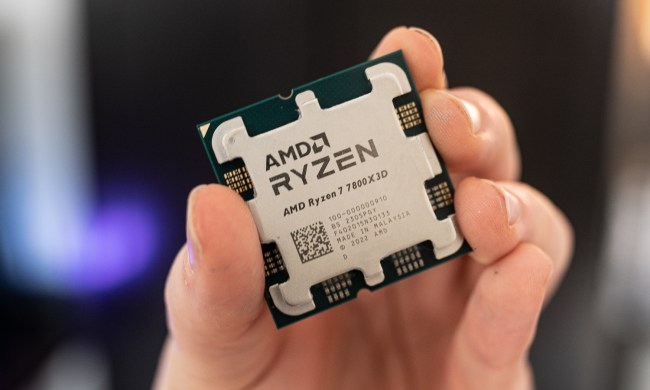A recently released AMD graphics driver is seemingly capable of modifying a PC CPU’s BIOS settings.
The worrying observation was initially spotted by technology insider Igor’s Lab, who reports that AMD’s GPU software and its latest driver, Adrenalin 22.3.1, and the Ryzen Master module it comes with, apparently attempts to alter the CPU configuration — as well as the boost settings — even though such an action was not initiated by the system owner.

As spotted by Tom’s Hardware, Reddit users have provided further insight into the issue. Due to its compatibility with the Ryzen Master SDK, it seems the driver gains the ability to modify certain system settings when the PC is equipped with both an AMD-based processor and graphics card.
As a result, the problem is confined to anyone who has the aforementioned driver installed on a system powered by Team Red components. Tom’s Hardware highlights how machines that sport an Intel CPU alongside an AMD Radeon video card won’t be subjected to possible undisclosed changes to their BIOS.
Similarly, the GPU driver will have no control over your CPU if your system is outfitted with a Ryzen-based processor accompanied by a graphics card from Nvidia.
Still, for those who are affected, running AMD’s Adrenalin application — a program that enhances AMD’s FidelityFX Super Resolution upscaling technology — will see the Precision Boost Overdrive (PBO) or the CPU OC setting switched on upon entering GPU profiles.
AMD processors feature a protection system that won’t allow any physical damage to materialize. That said, Adrenalin can still reportedly gain access to your CPU BIOS and start changing settings by itself. Theoretically, it could thus negatively affect the CPU’s performance. This scenario is emphasized by Igor himself (machine translated):
“If only something changes in the CPU, but the GPU remains unchanged because you had simply saved default settings in the profile. A routine during the loading process of the saved GPU profiles is to blame for this, which should have been programmed differently. The fact is that it actually looks like a small thing, but it can have a big impact on the system.”
Furthermore, Igor’s Lab adds that the AMD Adrenalin application is also able to adjust both the power limits and the maximum boost frequency of a Ryzen processor via the PBO settings.
In any case, a Reddit user outlined a fix to the problem:
“I hate this too, but found a way to avoid it. Don’t load older profiles, just create a new tuning profile for the gpu. It’s a small headache, reproducing clocks and fan curves, but once done, it won’t reboot/change bios PBO settings. Absurd that AMD did this but there’s the workaround.”
Many will agree with the Reddit user’s ending statement in regard to the issue occurring in the first place. Ultimately, applying changes to a PC’s CPU should be something that’s restricted exclusively to the owner of that system, as opposed to any program doing so by itself. As such, the matter at hand is quite perplexing. Is it some sort of glitch that needs to be patched by AMD? We’ll undoubtedly have an answer in the near future when Team Red responds.
Update: AMD has officially acknowledged the bug via a statement shared with Tom’s Hardware:
“We are aware of an issue in the AMD software suite that is adjusting certain AMD processor settings for some users. We are investigating the issue and we’ll share more information as soon as we’re able.”




